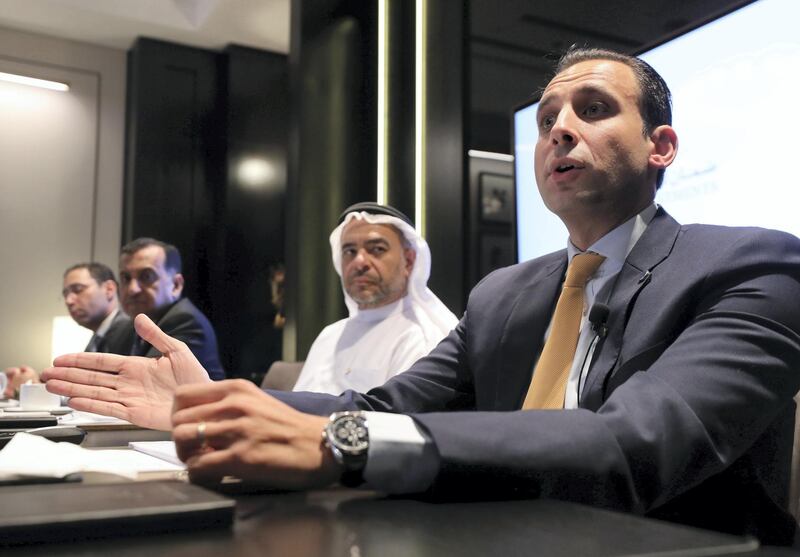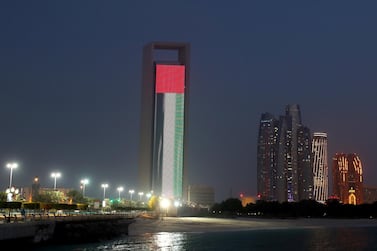Stock markets in the UAE now offer some of the most attractive returns to investors in the emerging markets space, particularly as government initiatives to drive growth offer a favourable economic outlook, according to Dubai-based Daman Investments.
On Sunday, the company's head of asset management Ali Al Adou said most neighbouring stock markets have outperformed the UAE in recent years, with the Dubai market declining 17.3 per cent since the start of 2017, and Abu Dhabi slipping 9.5 per cent if the shares of First Abu Dhabi Bank, which makes up 45 per cent of the market's weighting, were excluded. Including the bank, it has gained 17 per cent. On a price-to-earnings basis, he said UAE shares now look cheap. The Dubai market is priced at 7.6-times average earnings, compared to 16.5 times for Saudi Arabia.
“Versus regional markets we’re cheap, versus other emerging markets we’ve never been cheaper and the [earnings] yield in our market is actually the highest in the emerging markets space,” Mr Al Adou said. “We have a yield in our market of an average of around 5 per cent and the emerging market average is around 2.7 per cent.”
Mr Al Adou attributed the recent decline in UAE market valuations to a number of factors, including the broader economic slowdown, an escalation in geopolitical tensions, a decline in investor confidence due to corporate governance issues, and inefficiently managed firms. As a result, the volume of shares traded currently stands at around one-third of the 10-year average, he said.
Despite this, Mr Al Adou said that initiatives such as the Dh50 billion Ghadan 21 stimulus programme in Abu Dhabi, proposed investment of Dh486bn by Abu Dhabi National Oil Company by 2023 and a new law allowing 100 per cent ownership of onshore firms will help to drive the economy. In terms of capital markets, he described consolidation in the banking sector as “a very positive sign”.
Proposals to lift foreign ownership limits in companies are also seen as a boon. Last month, First Abu Dhabi Bank put forward a proposal to increase its foreign ownership limit to 100 per cent. The lender lifted its current foreign ownership limit to 40 per cent from 25 per cent in April.
This would bring in billions of dirhams of passive investment flows from funds tracking UAE markets but a bigger benefit could come through more rigorous oversight of companies, said Daman Investments’ chairman Shehab Gargash.
He argued that if more foreign institutions are to invest higher standards of oversight of company boards and of markets are needed to prevent possible insider trading and market manipulation.
"For me as a manager in this market, I have a much smaller universe of acceptable companies to invest in than I had five years ago. And this is not a function of a bad market, this is a function of bad governance,” Mr Gargash said.
Daman Investments is a financial services company offering asset management, brokerage, private equity and deal advisory services. The company is planning the launch of a new family of mutual funds, which will be domiciled in Luxembourg. Mr Gargash said that he expects the first of these, a balanced fund offering equity and fixed income investments, to be launched by the end of the year.








